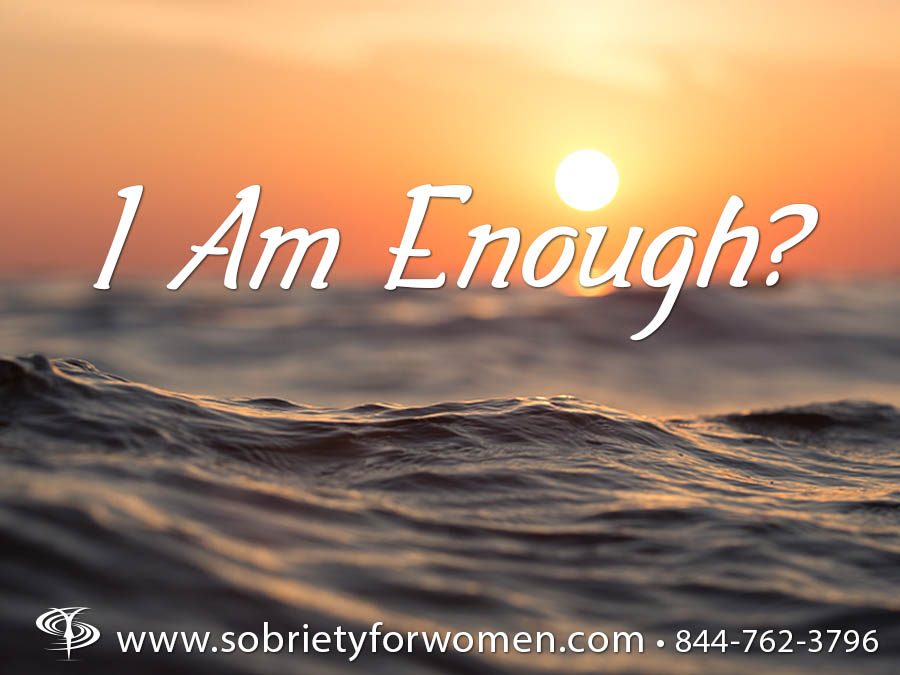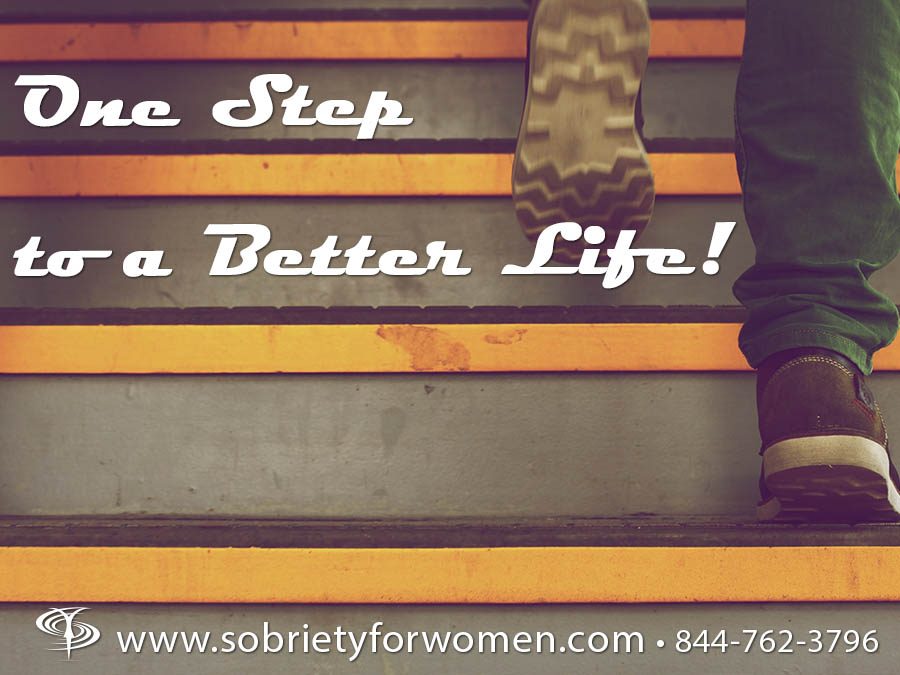
by A Women in Sobriety | Feb 24, 2015 | Addiction Articles, Recovery
Breaking the Stigma
It’s possible to break our anonymity in such a way that we don’t harm the various twelve-step fellowships we belong to. In fact, it’s possible to break our anonymity in such a way that not only are we not harming twelve-step fellowships, but we’re also helping the still sick and suffering.
Isn’t that what recovery is all about? Helping those who are struggling with active addiction? Helping those who can’t, come hell or high water, put down the bottle, the pipe, the syringe?
It was made clear to me very early on that my primary purpose in life was to help those struggling with drugs and alcohol. It doesn’t matter how busy I am. It doesn’t matter what else I have to do. It doesn’t matter if I don’t feel like it. If someone reaches out, I need to always be there to help.

So, with all that in mind, the question becomes how can I help people the best? How can I be of service to the still sick and suffering addict or alcoholic the best?
I’ve come to the conclusion that the best way to help those struggling with addiction, this entire planet’s worth of active addicts, is to break my anonymity. It’s to proclaim from the metaphorical rooftops that I’m a sober woman. It’s to shout at the top of my lungs that yes, I’ve recovered and yes, you can too.
Consider this my coming out, of sorts. I’m an addict in recovery. I’m a sober alcoholic. I’m a self-harmer who hasn’t seen light shine off a blade in years. I’m an eating disorder survivor. I’m depressed but still get out of bed each morning. I’m anxious but still talk to strangers. I’m mentally ill but still take my meds.
Of course, I’m not all of those things, but I might as well be. I’m many of them and the one’s that I’m not, well, I can identify with. The important part is the fact that I’m just like you. Yes, you. You reading this right now. I’m just like you.
I’ve felt the same despair and the same hope. I’ve celebrated and mourned the same things. I’ve been through the same impossible situations. It doesn’t matter if my impossible situations were different in the details than yours. We’re the same.
And, more importantly than anything else I’ve said so far, we can recover. At time it might not seem like it. At times it might seem like we’re doomed to die from our demons, or, even worse, to live with them. But I promise you that’s not the case. I promise you we can recover.
I’ll leave you with a quote that I can’t seem to stop thinking about. It’s from an essay I recently read about addiction and recovery.
The author, David Cohen, is the clinical director for one of the oldest and most respected rehabs in the country. He’s many years my senior. He been educated, I’m sure, at the country’s top schools. He’s a man and I’m a woman. Despite all of that, we’re the same.
We’re the same because we’ve both survived the same disease. A disease of our thinking and a disease of our actions. A disease of dishonesty. A disease that tries its hardest to appear to be anything but a disease. I’m talking, of course, about the disease of addiction.
So, enjoy David Cohen’s words. I certainly did. They triggered something in me that I can’t quite place my finger on. Read them and remember that we can all change!
“It is due time that the recovery community mobilizes to haul addiction out from the depths of dark basements, and into the light of the open and evolving nature of our society. I am proud to be in recovery. I am grateful everyday that I am free from the crippling grips of active addiction. Now is a time for all of us to spread the message of hope and healing to others who are still suffering. No longer should we glamorize addiction, nor should we oust the addicted individual from society, but rather we should join with the force of the current recovery movement to rejoice and celebrate the very human journeys of recovery that continue to emerge among us” (Huffington Post).

by Sally Rosa | Feb 9, 2015 | Addiction Articles, Recovery
Relapse Isn’t Mandatory
I recently stumbled across an amazing article on Huffington Post. It was an examination of relapse, recovery, and how normalizing relapse doesn’t benefit anyone – addict or family.

The author, Candace Plattor, is a clinical counselor and an individual in long-term recovery. She’s been sober for over twenty-seven years! That’s pretty impressive! She’s been sober for longer than I’ve been alive! Rock on, Candace!
I found her essay moving because it speaks to something that any woman, or any man for that matter, in recovery can attest to – the prevalence of relapse and the increasingly relaxed attitude surrounding it.
Now don’t get me wrong, relapse happens and we should treat those who slip with love and compassion. Lord knows I’ve relapsed before. If those in recovery hadn’t reached out and offered me a hand back up, I don’t know if I’d be here today.
That being said, I think Candace makes some good points. I think she’s offering a new way of thinking (which is really a throwback to an old way!) about relapse, recovery, and the struggle to stay sober one day at a time.
The Power of Willingness
One of the first points Candace makes, and something I’ve experienced firsthand, is that we need a great deal of willingness to get and stay sober. I can attest this is absolutely true! What’s more, I bet most of you reading can attest to the same thing.
I needed the willingness to check myself into treatment. I needed the willingness to get a sponsor. I needed the willingness to work the twelve-steps honestly and thoroughly. I needed the willingness to face my issues and work on them. I needed the willingness for a million other things as well.
Candace writes, “A huge part of that choice to get help and stay in recovery was that I had to be willing to learn how to face a life that wasn’t very pleasant without the use of mind-altering drugs” (Huffington Post).
That willingness didn’t come easy! It was only when everything else, including drugs and booze, had stopped working that I found it. I know I lacked any level of willingness in some of my halfhearted early attempts at sobriety.
Guess what happened during those attempts? I relapsed. I returned to opiates and alcohol because I wasn’t willing to do the work. I wasn’t willing to face the pain. Were my relapses required, though? Were they necessary parts of my sobriety?
Absolutely not!
Sobriety Isn’t Easy but It Isn’t Impossible
Another point that Candace touches on is how sobriety can oftentimes be incredibly difficult. Once again, raise your hand if you’ve experienced that yourself. Everyone’s hand is up? That’s what I thought!
While Candace struggles with Crohn’s Disease, I’ve struggled with mental health issues like anxiety and depression. I think any alcoholic, if they take a moment to reflect, can come up with a handful of serious issues they’ve struggled with in sobriety.
Now, oftentimes these struggles can be easy excuses for relapse. They can be an easy way to avoid facing the pain mentioned above. Fortunately, they don’t have to be.
Candace writes,
“That was an amazingly difficult time in my life, but the inner strength and self-respect I gained from that experience…have made me the person I am today, a person who’s proud of herself and knows she can handle the tough times. I’m grateful for that, and I’d love it if we could all feel that way about ourselves” (Huffington Post).
I love that! It’s so true that we gain strength, faith, and inner-love from facing and overcoming the challenges of life. It’s sort of like that saying “if you want self-esteem, do esteem-able acts.” If you want inner-strength, flex your God-muscle and face your demons!
Relapse is a Choice
Something I personally tend to forget is the simple fact that, for someone who’s gone through the steps, relapse is a choice. It’s nothing more and nothing less. For someone who’s had the obsession to drug and drink removed, picking up a drug or a drink is a conscious choice.
In her essay, Candace touches on this. She says,
“It’s absolutely up to the addict, whichever way they go in terms of staying abstinent or not — millions of clean and sober addicts show us every day that relapse is NOT a normal, expected part of recovery…” (Huffington Post).
Now, it’s important to remember this isn’t true for women who haven’t had the obsession removed! In early-sobriety, relapse often happens because the mental obsession returns and we have to drink. It’s not a choice, but rather a manifestation of the “strange mental blank spots” the book talks about.

Once we’ve gone through the steps, though, and had a spiritual awakening, relapse becomes 100% a choice. It’s at this point that personal responsibility and culpability enter the picture. It’s at this point that being of service to those who need it becomes of the utmost importance!
What do you think about relapse not being a required part of recovery? Let us know on social media!

by Fiona Stockard | Feb 6, 2015 | Addiction Articles, Recovery
Is AA a Cult?
Before getting sober, I wanted nothing to do with Alcoholics Anonymous, Narcotics Anonymous, or any other twelve-step fellowship. I was convinced meetings were some sort of cult ritual and everyone in the rooms was a brainwashed zombie. Of course, this couldn’t be further from the truth!

Still, I’ve heard this complaint come up time and time again. Before entering the rooms of recovery, most addicts and alcoholics don’t think very highly of twelve-step principles. And why should they? Twelve-step principles are a complete one hundred and eighty degrees from how we live our lives in active addiction.
There are a million and a half reasons addicts and alcoholics think AA is a cult. I’ll explore some common myths, and why they’re completely false, below. First, though, I’d like to make the bold declaration that twelve-step recovery saved my life. More importantly, it gave me a life that’s so amazing, so indescribably wonderful, that sometimes I have to pinch myself to make sure I’m not dreaming.
That should be enough to make anyone give meetings a chance. If it isn’t, well, keep on reading!
I Have to Go to Meetings Forever?
Those still in active addiction tend to make this a huge sticking point. I know I did. I was convinced that going to meetings forever was the worst possible thing that could happen to me.
Here’s a newsflash – you don’t have to go to meetings forever! You only have to go to one meeting a day. I’m living my life one day at a time. I have no idea if I’ll go to meetings in twenty years, but I do know I’m going to one tonight.
Plus, I’ll let you all in on this little secret that people with long-term sobriety don’t like to share. Are you ready? Going to meetings rocks! Where else can I share the most off the wall stuff and have people clap for me and love me?
I Have to Believe in God?
No, you don’t have to believe in God. In fact, you don’t have to believe in anything you don’t want to.
However, if you want to stay sober, you should probably talk to some AA members about a Higher Power. You’ll soon learn that a Higher Power can be absolutely anything you want it to be.
So, find something you’re comfortable with like nature or the ocean. That’s your Higher Power right there. Pretty easy, right?
People in AA are Weirdly Happy All the Time
Yeah, of course people in twelve-step groups are happy all the time! We’ve been saved from death and active alcoholism. We’ve been saved from a life that isn’t a life at all. We’ve gone from existing to living.
Wouldn’t you be happy if those things happened to you? No, we’re not weirdly happy because we’re in a cult. We’re weirdly happy because our lives are amazing. You should try it out sometime.
Isn’t Sober Life Boring?

Want to know some of thoughts about sober life from before I got sober? They went something like – “Oh man, how will I be able to live without going to parties?” or “I can’t imagine talking to boys without drinking a little first.”
I thought that drugs and alcohol made life exciting. They replaced the fear inside of me with false confidence. With this false confidence, I thought life was exciting.
It turns out that life was actually pretty boring. I mean, you tell me which of the following is more exciting. Going kayaking in the ocean with a few good friends or sitting in a room, smoking weed, and watching Comedy Central for eight hours?
Go ahead, which is more exciting? That’s what I thought.

by Sally Rosa | Feb 5, 2015 | Addiction Articles, Recovery
A Poem For Those Struggling
I found this wonderful poem floating around the internet the other day. I wanted to share it with all you amazing women recovering from a hopeless state of mind and body.

Together, we are enough. Together, I am enough.
I Am Enough
I am enough to make it
Through the night. I am enough
To make it through the day.
No matter my struggles
And I have many struggles
I know I’ll be OK.
I don’t give in, I believe and have faith.
I am enough.
You are enough to make it
Through anything. You are enough
To live through anything.
You don’t have to be perfect
And it doesn’t matter if you are smart
Just open your eyes and open your heart.
Find the strength and peace
That we have inside our chests.
Believe that it will stay there
Until your very last breath.
You are enough.
We are enough to make it
Through the highs and make it
Through the lows. We are enough
To make it through the dark sky
And the nights when tears fly.
Don’t give up I promise you
It gets better
and our dreams come true.
We are enough.
I am enough to make it
Through drugs, heartbreak and pain.
I am enough to make it
Through the cold and pouring rain.
I am enough to make it
Through anything with you my friend.
I am enough to make it
Because this is only the beginning it isn’t the end.
–Author Unknown

by A Women in Sobriety | Feb 2, 2015 | Addiction Articles, Recovery
Attitude is Everything
Want to know when in my life I was happiest? The answer might surprise you! I was happiest in early-sobriety while living in a halfway house.

Now don’t get me wrong, my life since getting sober has been nothing short of amazing. I’ve gotten to experience all sorts of things I never thought would happen. I’ve been blessed with friends, family, significant others, and a wonderful God. I’ve gotten to travel, to have amazing jobs, and to grow as a woman.
In other words, I truly have a life beyond my wildest dreams!
Still, there was something about early-sobriety and the simplicity of life that stands out. There was something about that period that makes me gooey with nostalgia. Life was simple, easy, and above all else, amazing!
I think it had something to do with my attitude!
Making the Most of What You Have
My attitude was what made this period in my life so wonderful. I was practicing gratitude like never before. I was taking unselfish and constructive action on a daily basis. I was giving instead of taking. Guess what? By giving, I received more than I ever imagined.
Now, there’s a whole debate (which I’ve participated in!) about how gratitude is steeped in action. Let’s set that aside for a moment and simply look at how gratitude changed my life!
The True Meaning of Gratitude
I was nineteen years old and living successfully on my own for the first time ever. I was coming off a one-year relapse. Prior to that year, I’d had almost six months sober. Prior to those six months, I’d been drugging and drinking for seven years.
So, being sober alone was enough to instill gratitude and humility in little old me! I was so grateful for a bed to sleep on, a pillow to lay my head on, and an air conditioner to keep me cool. I was so grateful for my roommates, friends who would answer their phones, and the ability to set past mistakes right. I was so grateful for my sponsor, my sober supports, and my new twelve-step family!
I was even grateful for my responsibilities. That’s something I tend to forget today. I was so excited to do step-work, to go to my job, and to go to school. Today, these things sometimes seem like a chore. In early-sobriety, though, they were blessings of the highest order.
I think that’s why I look back at this period as the happiest in my life. Now, I’d again like to say that my life today is beyond my wildest dreams. It’s truly amazing. Still, there’s always going to be a special place in my heart for those early days spent living in a halfway house.
There’s always going to be a special place in my heart for meeting with my sponsor, scared out of my mind to be completely honest, and walking away feeling light and free. That’s something special, my friends, it really is.











